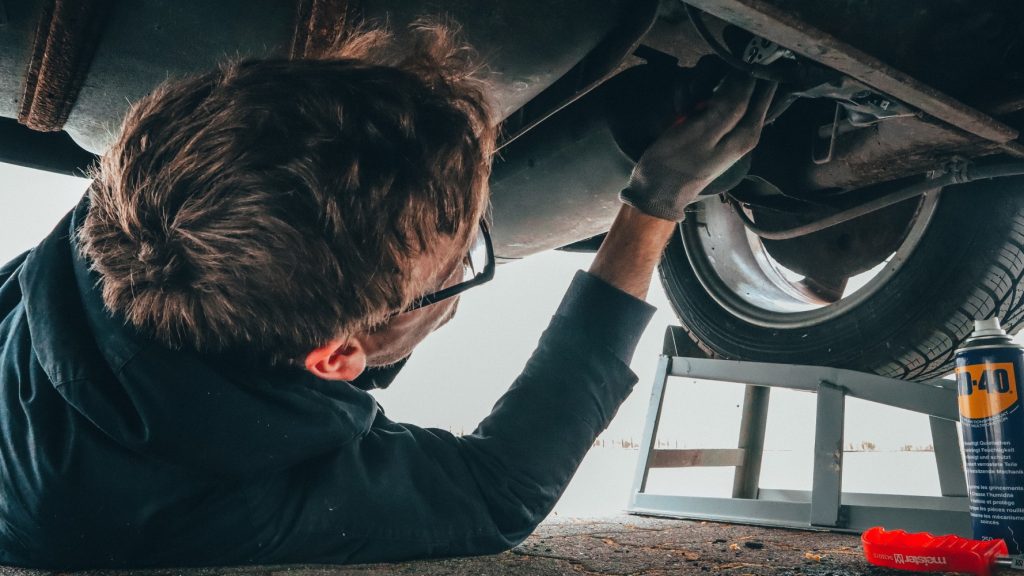Getting your car serviced regularly is a must if you are to maintain its value and reduce the risk of more serious problems occurring later on. But what exactly is a car service, how much should it cost, what work will be carried out and how long will it take?
In this article, we aim to answer those questions to help you understand the value of proper vehicle servicing.
What is a car service?
Generally speaking, a car service involves the checking and replacing of worn components in line with the manufacturer’s recommendations. Regular maintenance needs to be carried out to ensure your car keeps working reliably and safely. A service should be carried out by a trained technician, but they don’t have to work for a franchised dealer.
During each service, the technician will change the oil and filter, check brake fluid levels, brake pads and disc wear. Additional checks will also be carried out such as ensuring the lights, horn, exhaust and tyres are within limits and working correctly. These checks are important because they ensure your car is safe to operate on the road.
How often should you service your car?
Most manufacturers recommend a service schedule for each model they make. This will be detailed in the vehicle’s logbook or owner’s manual. But as a general rule Whichcar recommends that most cars should be professionally serviced every six months or 10,000km (whichever comes first).
Getting your car serviced in line with the manufacturer’s recommendations will not only help to preserve its value it will also ensure the vehicle is safe to operate. Regular servicing will also highlight problems such as worn timing belts. Replacing these components before they break will be much cheaper than rebuilding the engine later.
What is included in a car service?
The checks that are included during the service will depend on the type of service being carried out. Most manufacturers alternate between interim and full-service schedules for their vehicles.
What does a major car service include:
Interim service – During an interim service the oil and filter will be changed, and basic safety checks will be carried out. These include lights, fluid levels, brakes, tyres and electrics. On some vehicles suspension components, such as ball joints, will also need lubricating.
Full service – During a full service, more comprehensive checks are needed. This will include checking the engine to make sure bearings and timing belts are not showing signs of excessive wear. Wheel bearings, wheel alignment and shock absorbers will also be checked, pollen filters will be replaced and the air conditioning will be topped up.
Most manufacturers also stipulate when major components should be replaced. For example, most manufacturers recommend timing belts are changed every 100,000km or five years. But Holden recommends replacement every 60,000km for certain models due to a number of unexpected failures.
What is NOT included in a car service?
While most services include the replacement of key components not everything is included in the price. Your technician will give you a quote for the service which will include the cost oil, fluid and filters which form part of the service. But if other faults are found these will be charged extra.
For example, most services schedules do not include tyre replacement. So if you have defective tyres you will need to pay extra for them to be replaced. Similarly, most interim services do not include the replacement of brake discs or pads, although they will be checked for safety reasons. If defects are found your technician should call you to recommend replacement.
What happens if you don’t service your car?
Not getting your car serviced in line with the manufacturer’s service schedule is a false economy. A car without maintenance history is worth considerably less than a car that has been properly maintained. This is partly because people want to buy a car which has been looked after, while a complete service history can also be used to validate the mileage.
A regular service can also help identify components which need replacing. For example, a worn timing belt can snap which will cause extensive damage to the camshaft, crankshaft, valves and con rods. This will require a complete engine rebuild, costing several thousand dollars. A cost which could have been avoided for the small price of replacing the belt.

How much is a car service?
The cost of vehicle servicing varies depending on the type of service (interim or full) the vehicle, the model and whether servicing is carried out by the manufacturer or an independent technician. As a rough guide Oneflare estimate that average service costs are between $150 to $270 in Australia. Although the price can vary from state to state.
Other factors which may affect pricing include the geographical location, the age of the vehicle and whether regular servicing has been carried out previously. You can reduce service costs by carrying out basic maintenance checks such as tyre tread depth and fluid levels yourself.
How long does a car service take?
The length of time each service takes will depend on the manufacturer, model and the type of service being carried out. As a general rule, an interim service will take no more than 1 to 2 hours while a full service will take between 2 to 4 hours.
Bear in mind that this is for a standard service if defects are found extra time will need to be factored in to fix them. Your technician should be able to give you an estimate for when these will be completed. In all but the most serious cases, most repairs can be completed the same day.
Can it be done while you wait?
Interim or standard servicing can be completed in 1 to 2 hours if no further problems are found. So it is perfectly possible to wait while it’s carried out. However, you may want to notify the garage or technician that you intend to wait when you book the car in. This will allow them to get any spare parts they need.
A full service will take between 2 to 4 hours to complete so it may be better to arrange for a courtesy car or make alternative transport arrangements. Some garages may offer to take you home or on to the desired destination because no one wants to hang around for 2 to 4 hours while their car is fixed.
In Summary: Keep Your Vehicle Maintained
To sum up, getting your car serviced in line with the manufacturer’s recommendations will not only ensure your car is safe to operate and reduce the risk of any unexpected service bills. It will also ensure your vehicle is worth more when you come to sell it. You should be able to retain more than the cost of servicing when you trade it in.
But for the car to retain its value you must ensure that the logbook is completed correctly after every service. This is the only official record that the vehicle has been maintained properly. So paying for a service and not ensuring the logbook has been completed is a waste of time and money.
Sell Your Car For Cash Today
On the spot valuation and cash payment, all vehicles considered



